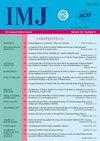PHARMACOLOGICAL TREATMENT OF AUTISM SPECTRUM DISORDERS: DIRECTIONS AND PROSPECTS
Q4 Medicine
引用次数: 0
Abstract
Autism spectrum disorders are developmental disabilities that occur in early childhood and are characterized with a persistent deficit of social interaction. Treatment of this disease is often multimodal and may include early intensive behavioral therapy (applied behavioral analysis), speech therapy, occupational and physiotherapy, social skills training, special education and training. Modern options for drug treatment of the autism spectrum remain limited. There is no evidence that any of the known drugs have a significant effect on social exclusion, which is one of the characteristic symptoms of this disorder. However, there are potential effects on its other disorders; in particular, risperidone and aripiprazole have the highest level of evidence for the irritability treatment. Memantine, riluzole, amantadine, and buspirone reduced irritability in children with autism spectrum disorders when administered in combination with risperidone. One of the common manifestations of the autism spectrum in children is a symptom of attention deficit / hyperactivity disorder. Methylphenidate has been reported to be effective in treating hyperactivity, but its efficacy in children with autism spectrum disorders is usually lower than in those developing physiologically. The efficacy of prolonged−release guanfacine and clonidine has been demonstrated. Stereotyped and repetitive behaviors in autism spectrum disorders are difficult to treat. Antidepressants have been shown to be ineffective in children with these disorders. Moreover, children with autism spectrum disorders develop more severe side effects when taking these drugs. Cannabidiol is likely to be a promising substance for the treatment of autism spectrum disorders, but there are still insufficient convincing clinical data on the efficacy and safety of cannabinoid therapy. Key words: autism spectrum disorders, comorbid conditions, treatment.自闭症谱系障碍的药物治疗:方向与展望
自闭症谱系障碍是发生在儿童早期的发育障碍,其特征是持续的社会交往缺陷。这种疾病的治疗通常是多模式的,可能包括早期强化行为治疗(应用行为分析)、言语治疗、职业和物理治疗、社会技能培训、特殊教育和培训。现代治疗自闭症的药物选择仍然有限。没有证据表明任何已知的药物对社会排斥有显著影响,而社会排斥是这种疾病的特征症状之一。然而,它对其他疾病有潜在的影响;特别是,利培酮和阿立哌唑有最高水平的证据,为烦躁治疗。美金刚胺、利鲁唑、金刚烷胺和丁螺环酮与利培酮联合使用可降低自闭症谱系障碍儿童的易怒程度。儿童自闭症谱系的常见表现之一是注意力缺陷/多动障碍的症状。据报道,哌醋甲酯对治疗多动症有效,但其对自闭症谱系障碍儿童的疗效通常低于生理发育的儿童。缓释胍法辛和可乐定的疗效已得到证实。自闭症谱系障碍中的刻板和重复行为很难治疗。抗抑郁药已被证明对患有这些疾病的儿童无效。此外,患有自闭症谱系障碍的儿童在服用这些药物时会产生更严重的副作用。大麻二酚很可能是治疗自闭症谱系障碍的一种有前景的物质,但大麻素治疗的有效性和安全性仍然缺乏令人信服的临床数据。关键词:自闭症谱系障碍,合并症,治疗
本文章由计算机程序翻译,如有差异,请以英文原文为准。
求助全文
约1分钟内获得全文
求助全文
来源期刊

International Medical Journal
医学-医学:内科
自引率
0.00%
发文量
21
审稿时长
4-8 weeks
期刊介绍:
The International Medical Journal is intended to provide a multidisciplinary forum for the exchange of ideas and information among professionals concerned with medicine and related disciplines in the world. It is recognized that many other disciplines have an important contribution to make in furthering knowledge of the physical life and mental life and the Editors welcome relevant contributions from them.
The Editors and Publishers wish to encourage a dialogue among the experts from different countries whose diverse cultures afford interesting and challenging alternatives to existing theories and practices. Priority will therefore be given to articles which are oriented to an international perspective. The journal will publish reviews of high quality on contemporary issues, significant clinical studies, and conceptual contributions, as well as serve in the rapid dissemination of important and relevant research findings.
The International Medical Journal (IMJ) was first established in 1994.
 求助内容:
求助内容: 应助结果提醒方式:
应助结果提醒方式:


